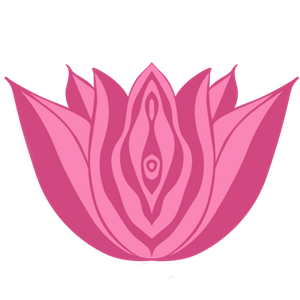Jade has been cherished for thousands of years. It’s considered pure and enduring enough to inspire the wearer’s highest spiritual aspirations, yet sensuous and luxurious enough to satisfy down-to-earth cravings. Asian consumers have never lost their fascination for jade, and today, non-Asian buyers are drawn to jade as never before. All are attracted by its rich heritage as much as by its beauty, durability, and rarity.
There are many fake Jade’s sold throughout the world and not a lot of people even know the difference between authentic and fake Jade as other stones such as green adventurine and even dyed agates are sold as Jade knockoffs.
Jade is such sacred stone, especially when used as a yoni egg; when women mistakenly buy fake Jade they are being robbed of the metaphysical healing powers Jade offers. Sadly they will miss out on the full scope of healing and spiritual work Jake brings to the table.
There are only two types of authentic Jade in the world: Jadeite and Nephrite. There is also Xiuyan Jade, which is a variety of nephrite (think rose quartz to quartz), but not true Jade although they are similar.
Nephrite and Jadeite Jade are the only two authentic Jade’s in the world.
Nephrite jade has its cultural roots in the smoke-dimmed caves and huts that sheltered prehistoric humans. In China, Europe, and elsewhere around the world, Stone Age workers shaped this toughest of minerals into weapons, tools, ornaments, and ritual objects. Their carvings invoked the powers of heaven and earth and mystic forces of life and death.
In Central America, the Mayans and the Aztecs prized jadeite jade. They used it for medicinal purposes as well as for jewelry, ornaments, and religious artifacts. The name jade comes from the Spanish expression piedra de ijada—literally “stone of the pain in the side.” Early Spanish explorers named it after they saw natives holding pieces of the stone to their sides to cure or relieve various aches and pains. Jadeite also symbolizes prosperity, success, and good luck.
At Gemstone Yoni Eggs, we sell both jadeite and nephrite yoni eggs, both certified authentic by the Gemological Institute of America (GIA).
Both Jadeite and Nephrite come in a variety of colors from black to white to all shades of green and even lavender! A truly stunning gemstone. Below are the Jade Eggs that we currently sell in our store. We are looking into adding black jade to our collection in 2017.
It’s important when purchasing Jade Yoni Eggs to make sure the seller has a certification of authenticity. If they do, look for accredited certifications from places like GIA. We’ve seen fake certifications that say a yoni egg is both nephrite and jadeite which is not possible, so be sure to do a thorough read over and make note of red flags (we’ve also seen “certifications” where the seller themselves certify their eggs and print it on a small business card!).
We recommend buying certified Jade Yoni Eggs as there are so many fake Jade Yoni Eggs being sold on the internet currently.
Certified Jade Yoni Eggs we sell:
Nephrite Jade Yoni Eggs are a deep and dark green color.
Jadeite Jade Yoni Eggs are a light apple green color.
Lavender Jade Yoni Eggs are a creamy purple color.
Certifications can be seen in the product descriptions pictures.

Do yoni eggs come in colors like swirls in the egg. blue, orange, brown or green. Swirls around the egg in color. I found some and I did not know whether this was a yoni or not.
Hello Kim!
Yes, yoni eggs can come in all different colors, however, there are many crystal eggs on the market that are being sold as “yoni eggs” when in fact they are not yoni safe. It is best to purchase yoni eggs from a reputable yoni egg retailer and better yet, certified stones. There are many stones that have been dyed or treated in order to get different colors.